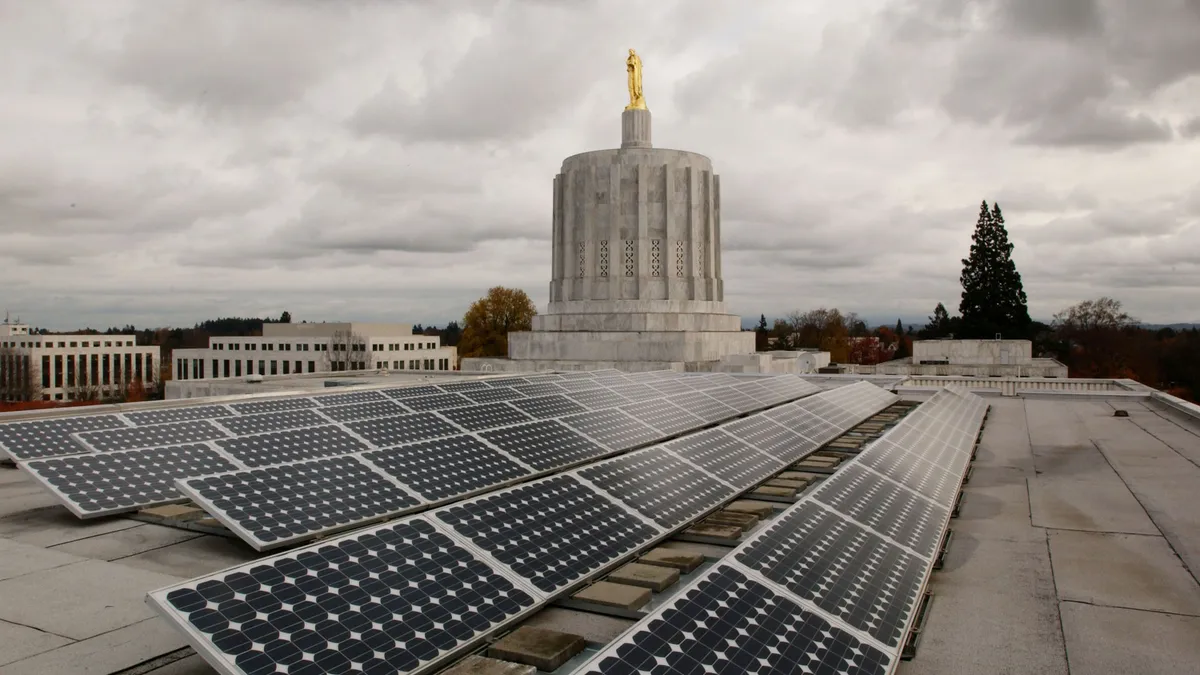Dive Brief:
- Oregon lawmakers approved a bill last week that directs the state treasurer to “stop investing … in companies that deal in thermal coal” and pull the nearly $1 billion in investments that Oregon’s Public Employee Retirement System has in coal mining and energy companies.
- House Bill 4083, also known as the Clean Oregon Assets Legislation Act, passed the Oregon Senate on March 5 with a 16-13 party line vote, shortly after the bill passed the House in February. The bill now awaits Gov. Tina Kotek’s approval.
- Investments in coal companies can be retained if they are transitioning to clean energy, and divestments “must be accomplished without monetary loss to the investment funds,” according to the COAL Act. The bill also requires an annual report to be submitted to the legislative assembly regarding actions taken in relation to its directives.
Dive Insight:
The COAL Act follows Senate Bill 1547, passed in 2016, which increased Oregon’s renewable portfolio standards for electricity providers and mandated the elimination of coal as an energy source for the state’s major utilities by 2030. The COAL Act also builds on the momentum established by other state funds that recently made ESG-aligned divestments and investments.
Last month, the New York State Common Retirement Fund said it would divest holdings worth approximately $26.8 million from eight oil and gas companies, including ExxonMobil, after reviewing their strategies to shift to a low-carbon economy. The news came after the California Public Employees’ Retirement System announced in November it was committing $100 billion toward climate solutions by 2030, more than doubling the value of its low-carbon assets by the end of the decade.
The COAL Act — which is spearheaded by Rep. Khanh Pham, D-Portland — gives the Oregon Investment Council the ability to adopt rules defining a reasonable timeline for companies that say they are transitioning to clean energy. The bill allows for such rules to be based on guidelines by the United Nations Intergovernmental Panel on Climate Change regarding necessary decreases in greenhouse gas emissions. Monitoring these transitioning coal companies will fall on the shoulders of the state treasurer, who must ensure these companies are on track to meet their emissions reduction targets, according to the bill.
“House Bill 4083 is complementary to the Treasury's goal of addressing the very real climate-related investment risks and opportunities to Oregon’s pension fund,” Oregon State Treasurer Tobias Read said in a statement. Read said the bill’s passing both addresses climate risks while also meeting the state’s “fiduciary responsibility to protect the pension fund.”
Read, who is in his final year as state treasurer, also released a Pathway to Net Zero report last month which laid out steps the agency could take to slash carbon emissions by 60% by 2035 and reach net-zero status by 2050.












